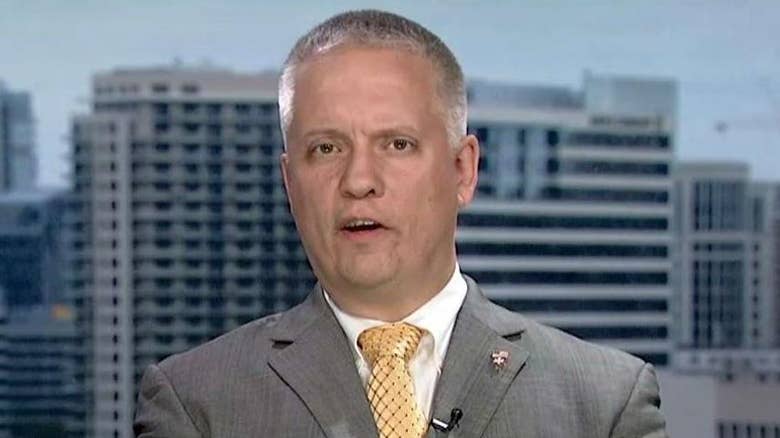Texas GOP Elector Won't Vote for Trump, Proposes K
Post# of 52105


For those who refuse to accept the election results, a new movement is afoot to deny President-elect Donald Trump the 270 electoral votes he needs to formally become commander-in-chief.
In a New York Times op-ed, Republican presidential elector Christopher Suprun wrote that he will not vote for Trump, despite Texas voters overwhelmingly picking the billionaire businessman on November 8.
"He tweets day and night, but waited two days to offer sympathy to the Ohio State community after an attack there. He does not encourage civil discourse, but chooses to stoke fear and create outrage," Suprun wrote.
He argued that in the Dec. 19 vote, electors "should unify behind a Republican alternative, an honorable and qualified man or woman such as Gov. John Kasich of Ohio."
"Fifteen years ago, I swore an oath to defend my country and Constitution against all enemies, foreign and domestic. On Dec. 19, I will do it again," he concluded.
Suprun told Neil Cavuto that Trump "fails a three-point test", citing the dozens of foreign policy experts that said Trump would make a dangerous president, his contention that Trump continues to divide the nation and attack the First Amendment, and that the president-elect "attacks the Saturday Night Live cast [more than he] attends intelligence briefings."
Suprun is reportedly the eighth so-called "faithless elector" and the first Republican of the group.
Some states have laws intended to bind presidential electors to the voters' choice, but Texas does not.
Meantime, a Harvard law professor is reportedly offering free legal advice to electors who wish to defy their state's voters.
According to AP, more than 99 percent of electors have voted as pledged throughout the nation's history.
Trump defeated Hillary Clinton 306 electoral votes to 232, so at least 36 defections would be needed.
 (0)
(0) (0)
(0)